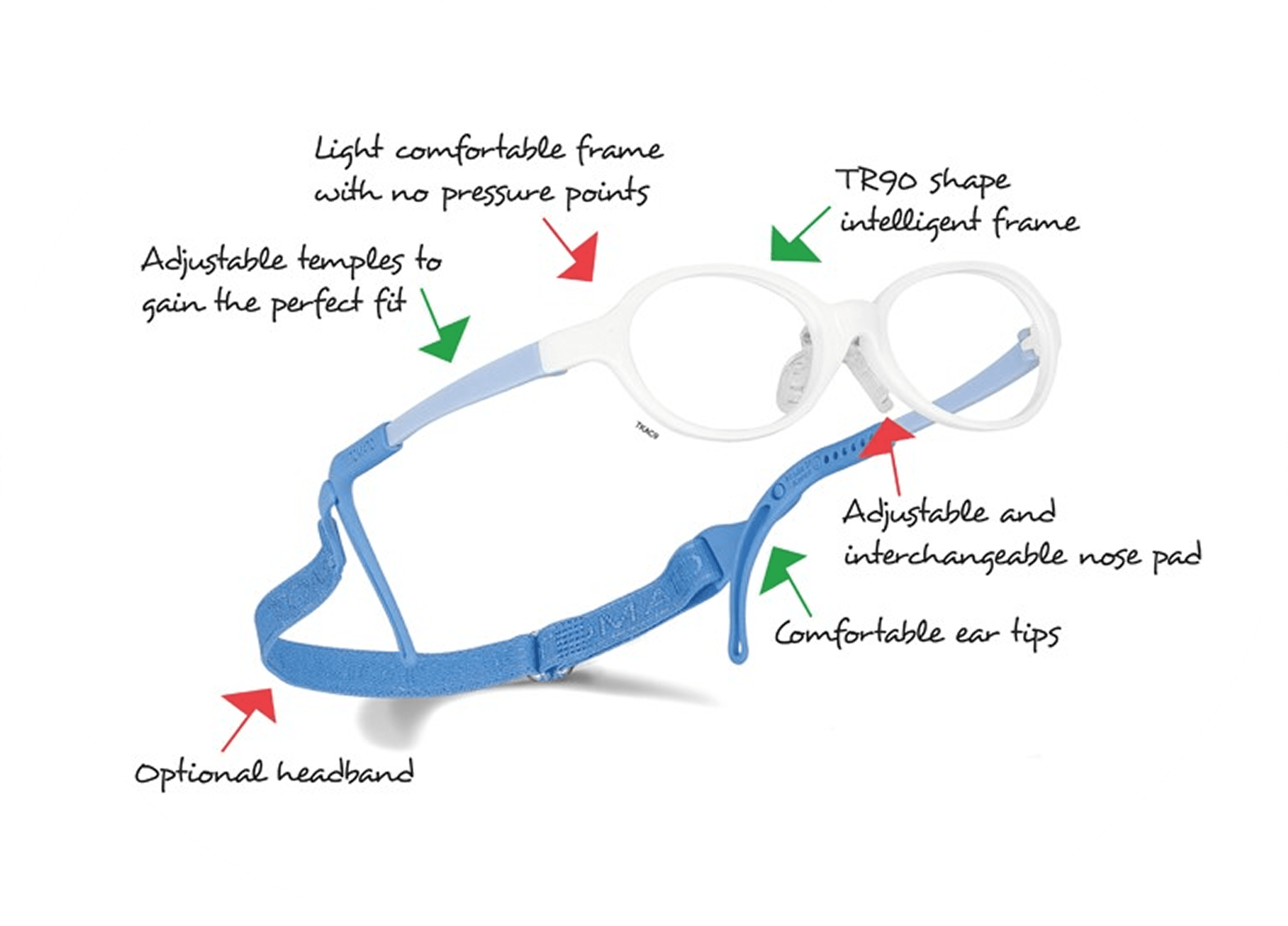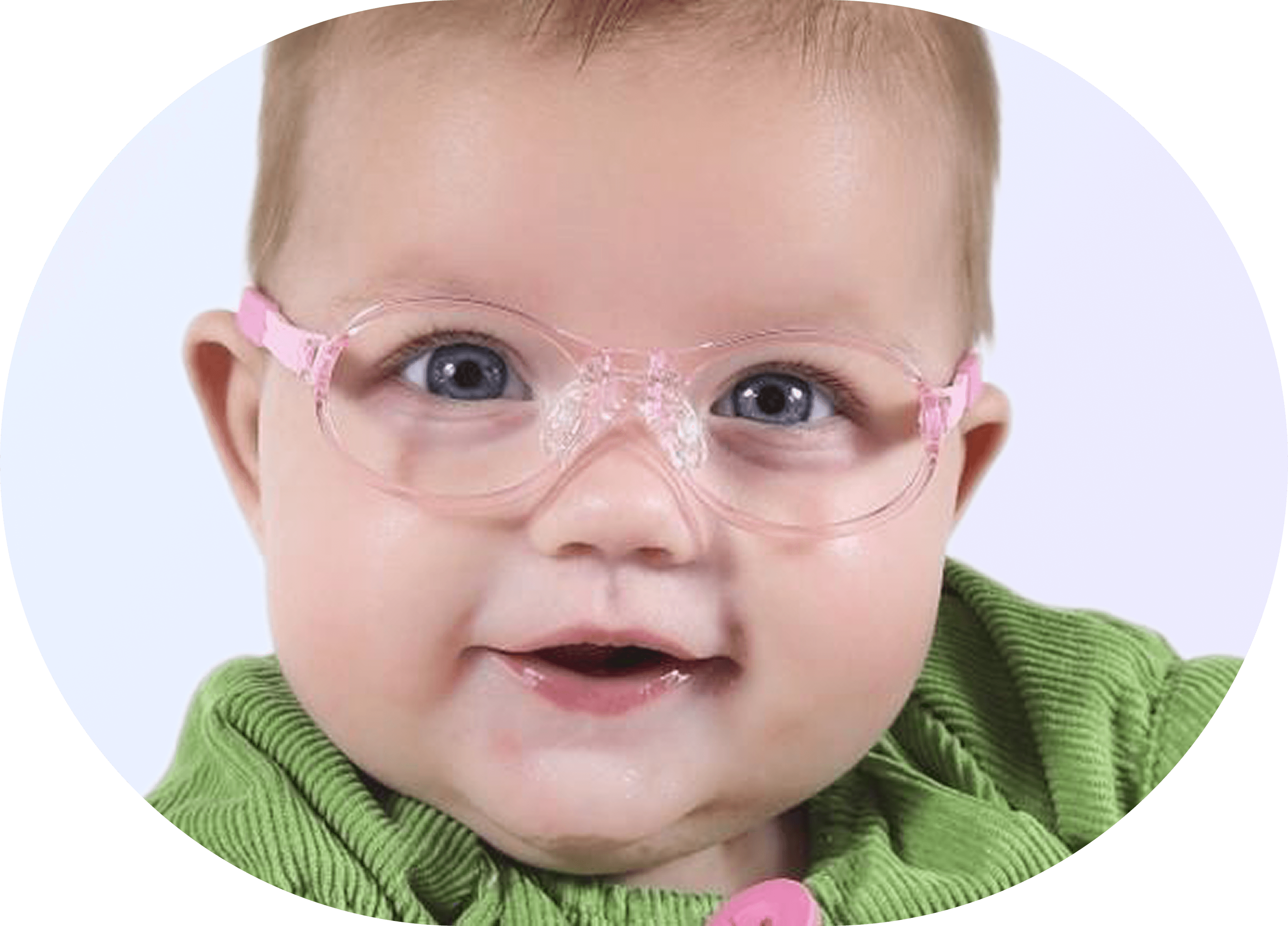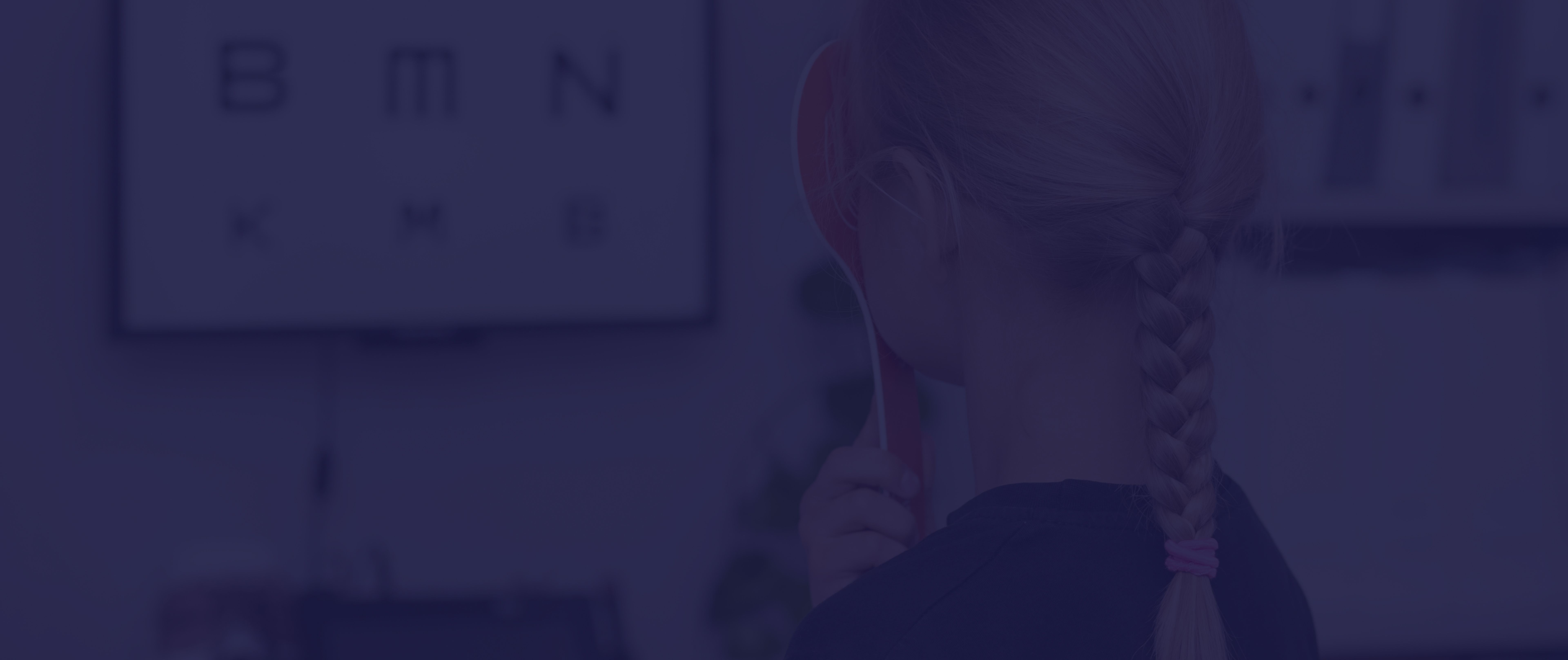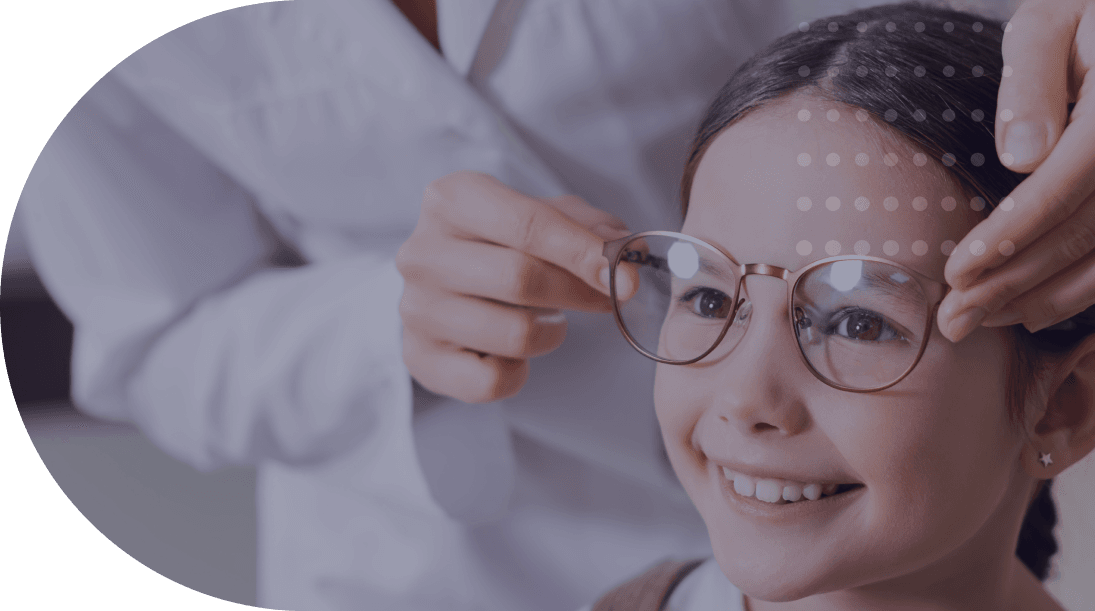Overview
Children with undetected vision problems often have trouble with their school work. Eye examinations can play an important role in ensuring normal vision development and academic achievement.
Vision is closely linked to the learning process and children with undetected vision problems often have trouble with their schoolwork. Young children rarely complain of vision problems simply because they don’t know what “normal” vision looks like.
We recommend that all children should have their eyes examined before (or soon after) they start school.
Children can be examined at any age and don't need to be able to read letters. If there is a family history of lazy eye or Strabismus (eye-turn), have their eyes examined as soon as possible - even as a baby. If you feel that your child is struggling with their schoolwork, be sure to have their eyes examined by one of our Optometrists to rule out any underlying visual cause.
Baby Glasses
At Mackey Opticians, we prioritize the perfect blend of style, comfort, and functionality for all our clients, including the littlest ones. That's precisely why we feature Tomato Glasses in our selection, especially tailored for babies and children. These frames offer an innovative solution to common issues faced by younger wearers, ensuring their glasses are as comfortable and secure as they are stylish.

We Can Help You with the Proper Fit
The importance of a proper fit cannot be overstated. It ensures that children benefit fully from their prescribed lenses, aiding in the correct development of their vision. We encourage you to visit Mackey Opticians to explore our range of Tomato Glasses, designed to meet the needs of our younger clients.
Our experience has shown that choosing the right pair of glasses can significantly impact a child's comfort and confidence. Tomato Glasses are not just a practical choice; they are a stylish one, too. We've received numerous positive testimonials from parents whose children have found both happiness and style in their Tomato Glasses. We look forward to helping you find the perfect pair for your child, combining professional expertise with the semi-professional care and attention you've come to expect from Mackey Opticians.

Tomato Glasses
Tomato Glasses are notably versatile, designed with unique adjustable features that cater to the specific needs of children. The adjustable nose pads and temple lengths allow for a personalized fit that can grow with your child, ensuring the glasses remain comfortably in place during all activities. This adaptability is enhanced by the inclusion of soft cushioned tips at the temples, designed to prevent discomfort around the ears.
Constructed from TR90 material, Tomato Glasses are both lightweight and durable. This ensures they are easy for children to wear without the risk of breakage, a common concern for parents. They weigh between 6 to 9 grams, making them one of the lightest options available on the market
Understanding the active lifestyles of children, each pair of Tomato Glasses comes with an attachable strap, offering additional security during play. This feature is essential for keeping the glasses in place, providing peace of mind for both parents and children.

Myopia Management
Every child deserves to see the world clearly. We provide gentle, effective myopia management tailored to young eyes, so they can focus on what matters most—being a kid.
Learn MoreRequest a Call Back
Leave your details and we’ll call you back as soon as possible!

